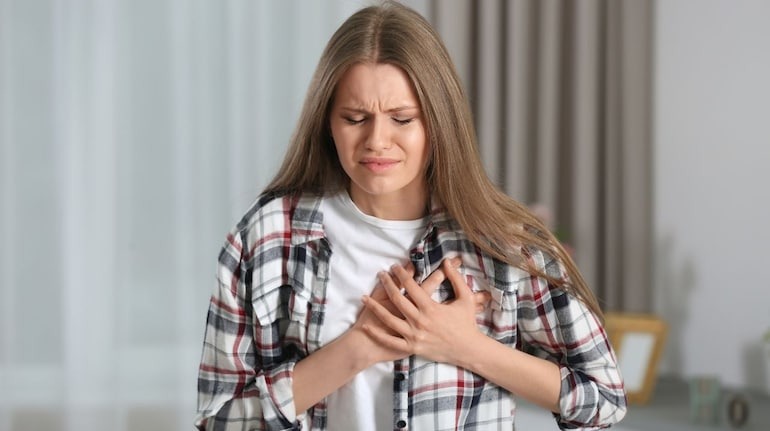
Signs of Heart Attack: Our lifestyle has become so busy that stress, unhealthy sleeping habits and bad eating habits have become a part of our daily life. We have forgotten our senses due to work pressure. In the desire to achieve more, we neither get proper sleep at night nor do we take care of our diet. Due to these reasons, many problems like heart related diseases like heart attack, cardiac arrest, heart failure and stroke can occur.
To make people aware about these diseases, World Heart Day is celebrated every year on the last Sunday of September. This year this day will be celebrated on 29 September (World Heart Day 2024). On this occasion, let us know about some symptoms that indicate a heart attack. By identifying these symptoms early, you can get timely medical help.
Why does a heart attack occur?
Heart attack can be a life-threatening condition. This happens when the artery carrying blood to the heart gets blocked. Due to this, there is a lack of oxygen in the heart and the heart muscles start dying. Due to the muscles not functioning properly, the heart is unable to pump blood and a heart attack occurs .
Although a heart attack can occur suddenly, it usually has some symptoms, which people often ignore and due to this the condition becomes more serious. By paying attention to these symptoms, timely help of a doctor can be taken.
Signs of Heart Attack
- Chest pain or discomfort - this is the most common symptom, but it doesn't always have to be severe. The pain may feel like a pressure, or squeezing sensation. It can often spread to the arms, shoulders, neck, jaw or back.
- Fatigue – Sudden or unusual fatigue, especially when you engage in normal activities, can be a sign of a heart attack.
- Headache- Headache without any concrete reason can also be a sign.
- Difficulty breathing – Shortness of breath or shortness of breath , especially while resting, can be a sign of a heart attack.
- Dizziness or fainting – Sudden dizziness or fainting may also be associated with a heart attack.
- Nausea or vomiting. Some people may experience nausea or vomiting before a heart attack.
- Sweating – Sudden cold sweat can also be a sign of heart attack.
- Painful muscle cramps – Some people may experience muscle cramps in their legs before a heart attack, which can be quite painful.
--Advertisement--

 Share
Share



